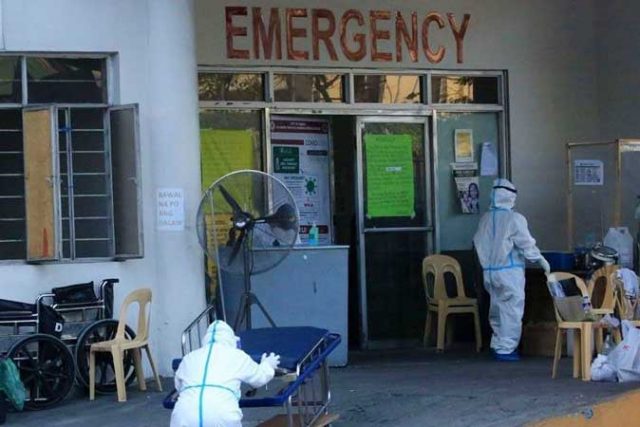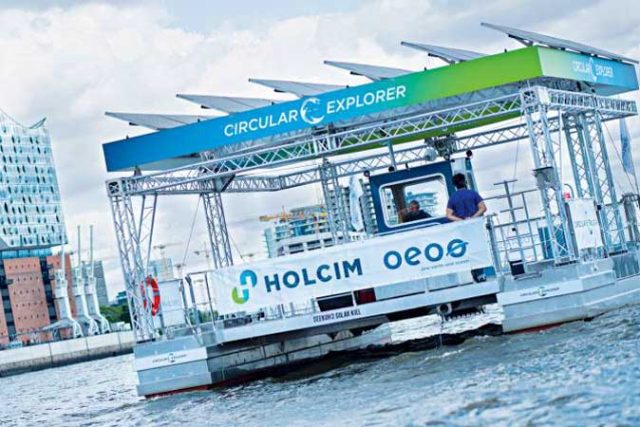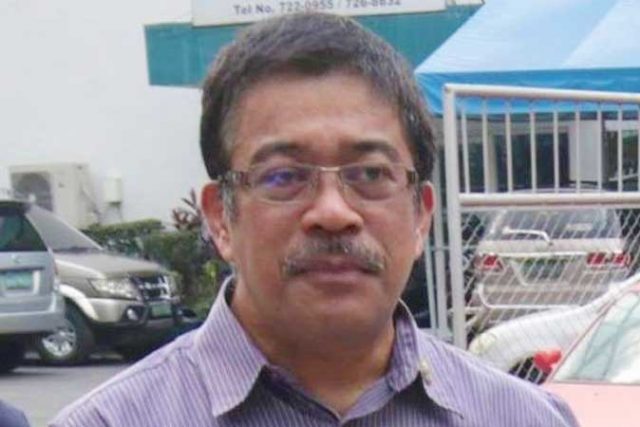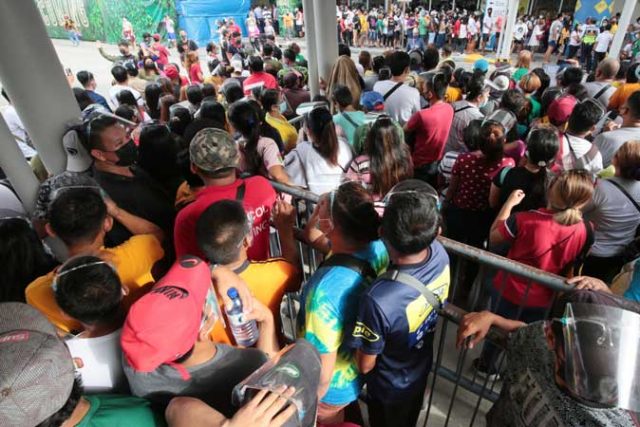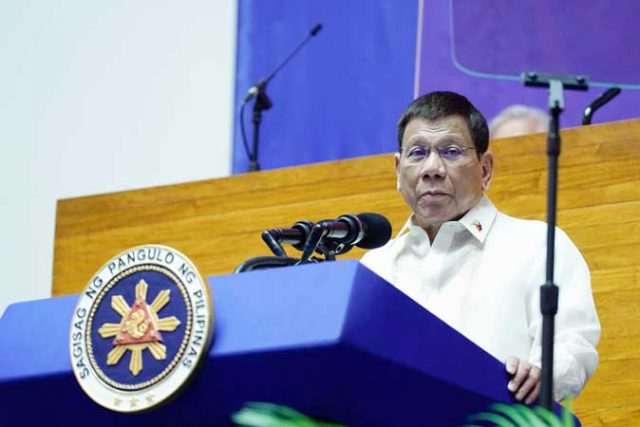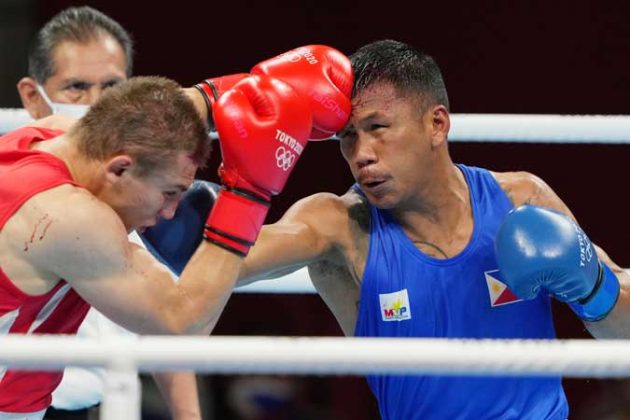Mandatory vaccination is unconstitutional. And any citizen has the right to sue the government (or a private establishment, e.g., businesses or schools) for any act or measure forcing them to be vaccinated or which restricts or discriminates against their constitutional rights because of their decision not to be vaccinated.
CONSTITUTIONAL PRINCIPLES
At the outset, mandatory vaccination (and measures related thereto) is defined here as compelling every citizen to be vaccinated against the coronavirus subject to imprisonment and/or heavy fine, including broad loss of rights, employment, travel or access to any establishment, education, or benefits provided by law, regardless of whether such compulsion is done by the government or private sector.
In any event, there are two principles worth mentioning here and both are fundamental under our constitutional system: subsidiarity (by which the most basic political entity — the individual — has primary responsibility to decide on issues) and the common good (“a set of conditions which enables the members of a community to attain for themselves reasonable objectives, or to realize reasonably for themselves the value[s], for the sake of which they have reason to collaborate with each other [positively and/or negatively] in a community” — from John Finnis, underscoring provided) provides for individual liberty and responsibility as the default when confronting societal issues.
A third are the inherent rights found in the Bill of Rights, particularly with regard to due process (both procedural and substantive) and equal protection. There are also issues relating to religious freedom, academic freedom, and contractual rights but such will not be discussed particularly here.
All the foregoing concepts found their way into the Constitution and are essentially manifestations of natural law.
POLICE POWER
Such may serve as exception to the foregoing but only if such measures have a lawful subject and lawful means. As for the latter, the Supreme Court described such as “means employed [that] are reasonably necessary for the accomplishment of the purpose and not unduly oppressive on individuals.” Such must also not violate the Constitution, i.e., must not violate due process and equal protection.
The primary branch of government that can issue police powers is the legislative branch. The Congress has not made any law providing for mandatory vaccination. The Executive can exercise it but by way of legislative delegation. Congress has not made a delegation regarding mandatory vaccination. The misnamed “Mandatory Infants and Children Health Immunization Act of 2011” (RA 10152) does not force people to be vaccinated and contains no penalty for those refusing to be vaccinated.
LAWFUL MEANS AND THE BURDEN OF PROOF
The burden of proving that mandatory vaccination is constitutional falls on those proposing the measure.
Thus, they must prove that such is “reasonably necessary” and “not unduly oppressive on individuals.” The facts that are available to us now however indicate that mandatory vaccination measures contemplated categorically fail on both counts.
Data — both locally and abroad — from 2020 to present have been consistent: healthy younger people are not seriously affected by the coronavirus and that such a virus seriously affects those 60 years old and above (as well as those with co-morbidities).
In the Philippines, 62-65% of deaths come from the 60 years old and onwards (constituting 7% of the population). Those of the 0- to 29-year-old age group (which comprise more than 53% of the population) constitute 5% of overall deaths. For anyone 0- to 29-years of age, if one focuses on the recoveries and deaths within that age range: the mortality rate is 0.3-0.5%. Take away those with co-morbidities, then the COVID-19 death rate for the 0-29 age group is practically zero.
More children die daily from malnutrition. More youths die from suicide, which saw a 26% increase in 2020.
No studies have been made showing the COVID-19 vaccine is proven safe from long-term effects. Which is natural for a drug that didn’t even exist a few months ago.
Effectiveness must also be addressed: despite the years, flu vaccines have been shown to be merely 50-60% effective, tuberculosis (which is more transmissible than COVID-19) perhaps 80%. Both the flu/pneumonia and tuberculosis have killed much more Filipinos than COVID-19 in 2020 (see PSA official data).
Finally, note that even vaccine supporters argue that it’s significance lies not really in blocking transmission of the virus but as protection against the severe effects thereof, which effectively precludes the argument that vaccinating the young would serve as protection for the elderly or those with co-morbidities.
EQUAL PROTECTION
Which leads also to the question of equal protection, where those within the same category must be treated equally.
If official government data has shown that TB and flu/pneumonia have killed more people consistently (including 2020 when COVID-19 showed up) then why was mandatory vaccination not made considering that the vaccines for those two diseases have a more proven and examinable record? Incidentally, dengue is perhaps more lethal to young people and yet schools were not closed despite that as is the case for COVID-19 (which, as facts show, generally do not seriously affect healthy young people).
Why has mandatory vaccination not ever been made at all? The Philippines has never done it, despite more lethal epidemics that it faced in the past. The US has not. Caution must be made on relying on the US Supreme Court case of Jacobsen v. Massachusetts. The questioned measure was not actually mandatory (as defined above): an individual can refuse to be vaccinated by simply paying a $5 fine.
Furthermore, Jacobsen involved smallpox — a disease with a case fatality rate of 30%. Smallpox alone killed 500 million people in the last 100 years. This despite there being a vaccine (invented in 1796). Incidentally, the 1918-1919 Spanish Flu pandemic killed 50 million worldwide and had a fatality rate of 2.5%. COVID-19 is being shown to have a case fatality rate (CFR) from between 0.1% and 2% (Philippine CFR hovers around 1.5%).
There is, admittedly, the case of Zucht v. King, where the US Supreme Court allowed the barring of a high school girl from attending public school. Nevertheless, this must again be used with caution and for five reasons.
First, again it involved the far more lethal smallpox virus. Secondly, the US Supreme Court merely referred to the ruling in Jacobsen, which in turn merely referred to a “reasonableness test,” i.e., it must be proven that there is a substantial connection between the law or measure and the purpose that it supposedly seeks to reach. Thirdly, Zucht the petitioner failed to raise issues of equal protection and so the Supreme Court did not consider that angle. Finally, there is last year’s case of Roman Catholic Diocese of Brooklyn v. Cuomo, which cautioned against using the previous two mentioned rulings to apply to every pandemic measure. “Jacobson hardly supports cutting the Constitution loose during a pandemic,” pointed out Justice Neil Gorsuch. “That decision involved an entirely different mode of analysis, an entirely different right, and an entirely different kind of restriction.”
Incidentally, Buck v. Bell is another cautionary tale against the over-reliance on Jacobsen: that case involved the involuntary sterilization of “feeble-minded” individuals, using the very reasoning found in Jacobsen: “The principle that sustains compulsory vaccination is broad enough to cover cutting the Fallopian tubes (Jacobson v. Massachusetts, 197 US 11). Three generations of imbeciles are enough,” so argued Justice Oliver Wendell Holmes.
It must be emphasized that equal protection does not only mean that those within equal categories be treated similarly. Conversely, those of different categories should be treated differently.
The point is that, with all that we know now about COVID-19, it would simply be unreasonable and discriminatory to impose mandatory vaccination on an otherwise healthy and significant portion of the population, when the minority that is truly affected by the coronavirus has been identified. Indeed, precisely because that minority has been identified, the government should now be enabled with greater probability to apply less intrusive means to serve public health purposes that will not violate civil liberties.
INTERNATIONAL LAW DOES NOT PROVIDE FOR MANDATORY VACCINATION
Finally, note that in the case of Solomakhin v. Ukraine, the European Court of Human Rights (ECHR) pointed out that mandatory vaccination violates a person’s right to integrity (protected under ECHR Article 8).
Media seemingly did make it appear that the ECHR was open to the idea of mandatory vaccination in the recent case of Vavřička v. Czech Republic. But there were considerable caveats ignored. The case involved vaccination for young children, (unlike that of COVID-19 vaccines, which, as of today, are currently said to be safe only for adults) Vavřička — like Jacobsen — was also not an “enforced” vaccination: parents refusing to have their children vaccinated merely faced a fine and their children disallowed from attending school (but disallowed from pre-schooling level only; also shades of Zucht here). The Czech measure did not physically enforce vaccination or involve mandatory vaccination as defined here.
Equally importantly, as the ECHR itself pointed out, vaccination is essentially an empirical question and thus context is important. Proportionality and equal treatment (particularly if penalizing those unvaccinated will result in loss of civil rights, especially for minorities and underprivileged) must also always be considered. In fact, the ECHR even pointed out most other European countries did not resort to mandatory vaccination.
— IN FINE —
No law (whether here in the Philippines or relevant other jurisdictions), no jurisprudence (whether in the Philippines or under international law), and — most importantly — the underlying societal and constitutional principles our country adheres to, provides for or categorically gives specific authorization for mandatory vaccination as defined here.
To be clear, mandatory vaccination per se is not constitutionally or philosophically anathema. But to be permissible, they will have to pass tests of reason, facts, and the Constitution. And the burden of proving that, of passing those tests, lie with those pushing for mandatory vaccination.
Jemy Gatdula is a Senior Fellow of the Philippine Council for Foreign Relations and a Philippine Judicial Academy law lecturer for constitutional philosophy and jurisprudence.
https://www.facebook.com/jigatdula/
Twitter @jemygatdula

